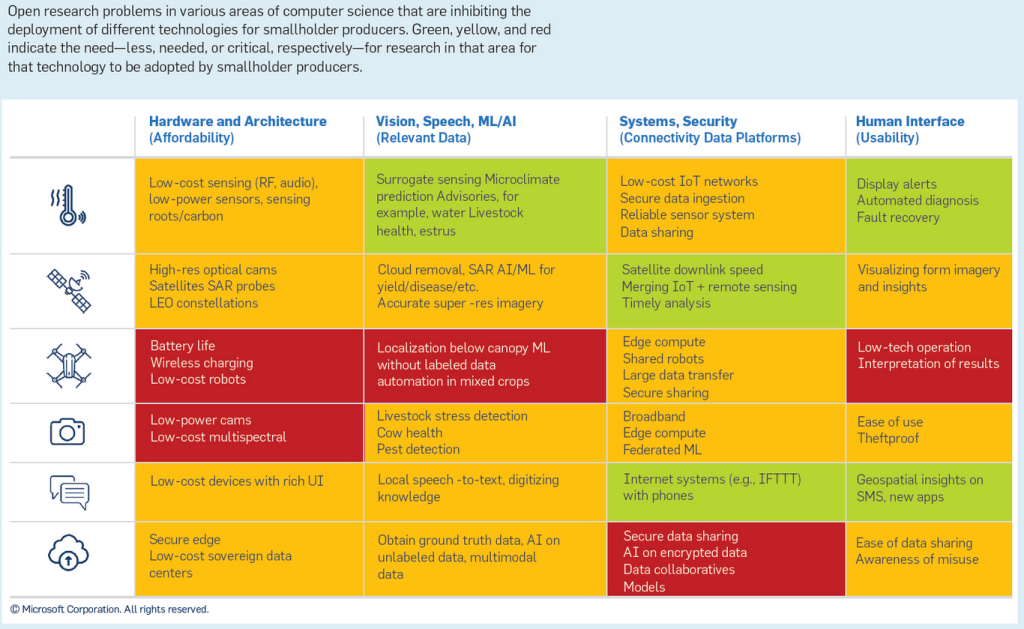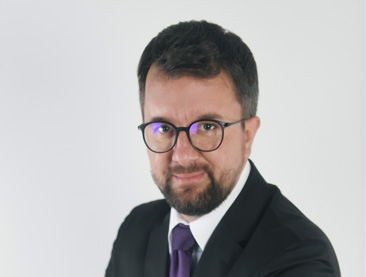- Forum for the Future of Agriculture (ForumforAg) has been contributing to the debate on agriculture and the environment in Brussels since 2008 and is now firmly established as the premier event of its type.
- As well as the main event in Brussels, regional conferences every year discuss agriculture and environment at a national level across Europe.
27/03 Pre-conference
Start-Ups Voice: Promoting stronger ecosystem services through agriculture and forestry. How to sustainably manage natural resources?
- Kiebitz – Kiebitz supports companies to invest in natural capital and create high quality nature-based solutions that build biodiversity, sequester carbon and regenerate the ecosystem.
- Climate Farmers – Scaling regenerative agriculture, empowering farmers and field practitioners to fight climate change.
- Treely – Tree.ly gives forest owners in Europe a whole new way to profit from their forests. They help forest owners to manage the CO₂ potential of their trees to optimize carbon sequestration, bringing us all closer to a sustainable future.
- Wilder Land – Restoring Duch Biodiversity together with farmers.
How to set credits for ecosystem services on the international market?
Carbon markets are developing rapidly, and companies are lining up to purchase credits. This gives land managers new avenues for profitability through result-based schemes. But how are these credits generated? And is there a potential for biodiversity credits on the European market? During this session representatives of landowner associations open the discussion with experts to understand the direct impacts of the growing credit market from a scientific, global, and users’ perspective.
Innovation for the future of forests
The climate crisis has an increasingly devastating effect upon Europe’s forests. Their future will be determined by our capability to find innovative solutions, appropriate legal instruments and new business models for forest owners.28/03 Main conference - See the recording
Can we afford not to pay the price of change in today’s geo-political and economic reality?
- Keynote - Frans Timmermans, Executive Vice President, European Commission
- Dr. Martin Frick, Director, WFP Global Office Berlin
- Sean de Cleene, International Food Systems Partnership Expert
"It all began with 12 high school students in Tanzania. And they were concerned about things that were happening in the environment. So I said to them, well look, let's get together and see what you can do. So we got together and we decided the main message for this program that came to be called Roots and shoots. Every individual matters, makes a difference has a role to play every single day. Secondly, because nature and societies have such interconnection that we would have every group doing three projects, one to help people, one help animals, one to help the environment. And so what began with these 12 high school students now has members from kindergarten all the way through university. It's in 67 countries and growing hundreds and 1000s of young people all working to make the world a better place."
"One way of taking action is to move towards a plant based diet because industrial agriculture is having such a terrible impact on the environment. So that's one thing and then to encourage farmers by buying their produce who are moving into more sustainable forms of agriculture, such as regenerative farming, and of course, growing organically that goes without saying, we're moving into permaculture moving into ways of farming without relying on these chemical pesticides and herbicides, and all this artificial fertilizer, fertilizer because these are the ways of farming that are working with nature, rather than against nature, and actually almost able to produce more on this kind of, because there's ground cover, which means water retention".
How to build a more resilient & sustainable food and agriculture system: what have we learnt from the energy crisis that enables us to overcome the challenges and exploit the opportunities?
- Catherine Geslain-Lanéelle, Director Strategy and policy analysis, DG AGRI, European Commission
- Shari Rogge-Fidler, President and CEO, Farm Foundation
- Professor Tim Benton, Research Director, Emerging Risks; Director, Environment and Society Programme, Chatham House
- Eva Weijber, Farmer & Landowner, Sweden
How can Nature Based Solutions drive resilience and sustainability in the AGRI-food system and how do we better align incentives to accelerate change?
- Dr. Jurgen Tack, Scientific Director, European Landowners’ Organization
- Dr. Angelika Hilbeck, Institute for Integrative Biology in the Department of Environmental Systems Science, ETH Zurich
- Dr. Boris Erg, Director, IUCN Europe
- Dr. Johan Swinnen, Managing Director, Systems Transformation, Consultative Group on International Agricultural Research (CGIAR), and Director General, International Food Policy Research Institute (IFPRI)

- Inspirational speech: Ranveer Chandra, Managing Director for Research for Industry, and CTO of Agri-Food, Microsoft - How we can use technology to better serve biodiversity?

- How does digital agriculture work for small scale farmers? @ 5:38:36
- Ranveer started the FarmBeats project at Microsoft in 2015. FarmBeats, includes Cloud, IoT & AI innovations for agriculture that enables seamless collection and analysis of data across various sensors, cameras, drones, and satellites.
- He was recently recognized by the Newsweek magazine as America’s 50 most Disruptive Innovators (2021). Ranveer has an undergraduate degree from IIT Kharagpur, India and a PhD from Cornell University.
He referred to his research paper:
Ranveer Chandra, Stewart Collis (2021) Digital agriculture for small-scale producers: challenges and opportunities # 10 p
Ranveer Chandra, Stewart Collis (2021) Digital agriculture for small-scale producers: challenges and opportunities # 10 p
- Download the paper here (more than 17,500 downloads)
- Download the full paper from the PAEPARD Dgroups # 10 p
"We want data driven agriculture to be democratized. We want the benefits of data and AI to reach every farmer anywhere in the world. And when we talk of that, we need to include smallholder farmers. That is one question we are conscious of. This is like with the digital divide, we don't want to increase the divide between big farmers and the small farmers and there are many smallholder farmers worldwide.
There are over 500 million smallholder farmers worldwide and there was a recent paper I wrote with the Gates Foundation, where we have the statistics which talk about only 13% of the smallholder farmers out of the 500 million plus smallholder farmers use any form of digital agriculture. And then we look at the challenges around it. The challenge is why don't they use more digital agriculture? The number one problem is that internet access, most like around the world, they have 3 billion people who do not have internet access. And many of them are smallholder farmers. If you don't have internet, how will you even get data from the middle of the farm? How would you get them to benefit?"

14/03 Announcing Microsoft Azure Data Manager for Agriculture: Accelerating innovation across the agriculture value chain
- With so much agriculture-relevant data generated across the farm—from sensors in the soil to satellites orbiting the earth—many organizations don’t have the resources to harness it effectively. Azure Data Manager for Agriculture helps break down data silos, allowing organizations to build solutions that provide predictive and prescriptive insights on soil health, changing weather patterns, waste tracking, carbon sequestration, and more.Microsoft Azure Data Manager for Agriculture is now available in preview.
- With Azure Data Manager for Agriculture, agriculture input providers can accelerate solutions that empower farmers to adopt more sustainable practices. For example, Azure Data Manager for Agriculture is a foundational component for Land O’Lakes’ digital offerings, including the Truterra sustainability tool. Truterra provides insight into how different agricultural practices impact water, nitrogen, and carbon on a farm, and it enables farmers to track their soil’s carbon sequestration and participate in carbon markets.
- Azure Data Manager for Agriculture is only one part of the Microsoft commitment to accelerating progress toward a more sustainable planet. With their next initiative, Project FarmVibes, Microsoft Research is building toolkits and AI models that are available in Microsoft Open Source to advance agriculture innovation in the scientific community across academia and business.
How can we act better: the case for improving biodiversity, soil health and water resilience?
- Virginijus Sinkevičius, Commissioner for Environment, European Commission
- Tasso Azevedo, Coordinator MapBiomas & SEEG initiatives, forester & former Chief of Brazilian Forest Service
- Truke Smoor, Global Water Lead, Cargill
- Mark Hall, Head of Sustainable Farming EAME, Syngenta
- Andrea Erickson-Quiroz, Global Director for Water Security, Deputy Managing Director for the Food and Water Systems Priority, The Nature Conservancy
- Dr. Claudia Sadoff, Executive Managing Director, CGIAR
- Katharina Stenholm, Senior Vice President and Chief Sustainability Officer, PepsiCo Europe
- Richard Heath, Executive Director, Australian Farm Institute
- Žiga Vavpotič (see picture), Director of Partnerships LoginEko recording @ 7:15:00
- Ted Bilyea, Canadian Agri-Food Policy Institute (CAPI) Distinguished Fellow
stem to support our model.
Data-driven farming for LoginEko means
- data acquisition from all possible sensors
- drone recordings to be up-to date with the conditions on all fields
- all mechanization has centralized tracking and data acquisition in real time
- advanced weather stations on all micro locations
- tracking of soil microflora
- tracking of all farming operations
- central information system
- Decision-making and learning based on collected data






No comments:
Post a Comment